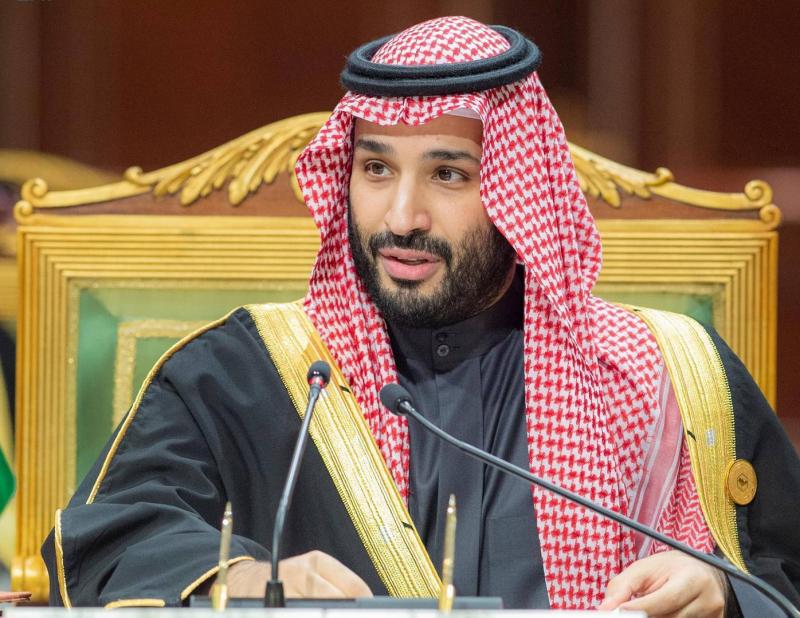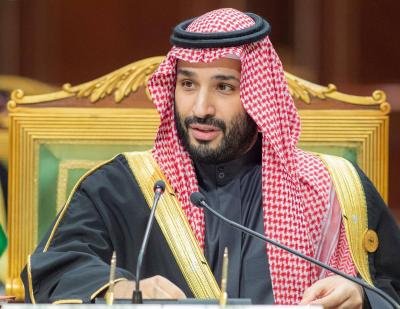The Lebanese file remains in the hands of capitals preoccupied with their own calculations, following the two major summits in Riyadh and Tehran, with the presence of U.S. President Joe Biden at the first, and the Russian President at the second. A French source spoke of an impending visit by Saudi Crown Prince Mohammed bin Salman to Paris to discuss several urgent issues, including the Lebanese situation, just weeks before the presidential deadline, as reported by "Al-Markazia."
Political sources likened the situation between President Michel Aoun and Prime Minister Najib Mikati to a near-complete rupture regarding the formation of a new government, with no communication or any timid attempts to move the government formation crisis from stagnation. It seems as if the formation process has no room amidst the opening of the presidential battle between various contenders and key players. Additionally, the pressing crisis, with all its ramifications, does not warrant renewed communication or a revival of consultations, among those responsible for constitutional duties in managing authority, to mitigate the negative effects of people's suffering.
The sources indicated that the positions of the head of the Free Patriotic Movement, MP Gebran Bassil, in his television appearance on Al-Manar, and his escalated attack on Mikati, as well as his criticism of the way he presented the ministerial lineup to the President, and his pretended indifference towards blocking government formation, intensified conflicts and confirmed that the issue of forming the new government had been shelved, despite no party or official disclosing this matter thus far.
Sources considered that the ramifications of Bishop Moussa El-Haj’s negative incident, regardless of its motives and causes, cannot be separated from the pressing influences on the presidential elections, given the position held by Bishop El-Haj and his relationship with Maronite Patriarch Bechara Al-Rahi, who is striving to rally support for the prompt conduct of presidential elections, according to specific criteria and standards that do not please many Maronite figures aspiring to run for the presidency.
The sources noted that Bassil's media appearance on his ally, Hezbollah's screen, is part of the messages the party wanted to convey to both his adversaries and allies alike. First, that Bassil is a candidate for confrontation with the party, even if he ostensibly declared that he is not a candidate at present, to gauge the reactions of his traditional opponents to this position, while he is ready to alter his stance at a moment's notice if he senses a tangible glimmer of hope regarding his ability to run for the presidential elections and win. Furthermore, his announcement of refusal to support the candidacy of his political rival, Sleiman Frangieh, for the presidency carries implications regarding Hezbollah's reluctance to back his candidacy, unlike a prior commitment, for reasons and explanations that remain unknown, with some attributing it to dissatisfaction with his relationship with Syrian President Bashar Al-Assad at the expense of his relation with the party.
Informed ministerial sources told “Al-Jumhuria” that there is no political, governmental, or administrative explanation for the stagnation in the formation process; communications are nonexistent, and mediators have entirely disappeared from the movement between Baabda and the Grand Serail. Neither the designated president expressed interest in the matter, nor has the presidential palace taken any steps in this direction, leaving the file open to intermittent debates between officials of the Free Patriotic Movement and Mikati’s circle.
The sources noted that the importance of forming a new government should not be underestimated, despite the urgency of the presidential elections. They emphasized that every day counts in addressing the repercussions of the collapse, stating that time is extremely valuable. Furthermore, they highlighted that the upcoming government's mission is not solely limited to managing the period before the presidential election but also covers the period after it, awaiting the elected president and the designated president to form the first government of their term. Should the presidential elections not take place within the constitutional deadline, the role of that government will naturally be more critical, as it will fill the vacuum until further notice.
In the same context, well-informed sources confirmed to "Al-Jumhuria" that the governmental file is in a state of paralysis, with no breakthroughs achieved in the impasse, and there are no real efforts being made towards forming the new government. It appears that everyone is resigned to the status quo, with both the President and the designated president seemingly waiting for the initiative to come from the other. These sources observed that international and regional capitals connected to Lebanese affairs are not showing genuine interest in the government formation issue. Instead, they are implicitly prioritizing the presidential elections, which will be the cornerstone of external and internal calculations for the upcoming phase.
The same sources expressed concern about the possibility of the caretaker government continuing until the presidential election date, warning that this would freeze the fundamental solutions to vital issues related to the economic and social crises, thus perpetuating internal bleeding. Additionally, this may create a new predicament if a presidential vacancy arises and some refuse to recognize the caretaker government's eligibility to assume presidential powers, leading to an additional tunnel after October 31st.




